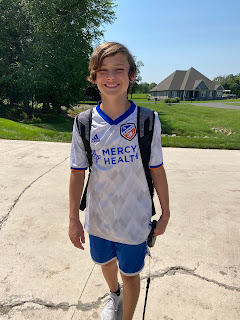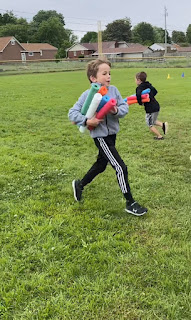I know the school year has ended, but I thought it would be a good time to become familiar with some terms and acronyms in the field of education. Some of you may have recently completed developmental screenings and are in the middle of evaluating your child’s need for services.
Sometimes these acronyms get used and we forget to explain what they are or what they mean to families.The two main points of IDEA are that children receive needed special services for free in their LRE (Least Reatrictive Environment)
At the IEP meeting you will be asked if you would like a copy of the procedural safeguards. This is a requirement that is part of this IDEA law. Parents have specific rights and protections throughout the special education process.
A great resource describing IDEA is: https://www.wrightslaw.com/info/idea.index.htm
This is one of the tenants of the IDEA law.
FAPE means that children ages 3-21 years have the right to FREE education, special education, and related services (preschool children fall under this law if they have an IEP in place). This education should be APPROPRIATE for the child, meaning that the child with disabilities should have an IEP or a 504 plan that gives equal access to learning. Equal access looks like provision of related services to help the child grow in the school setting.
We will talk about related services in the next few posts!
This is a fancy way of asking where the special services will occur.
If possible, children should remain and be included in the environment that their same aged peers are. This is the LEAST RESTRICTIVE. If instruction is not possible in this environment, the team needs to write where services will occur and how much time the child will spend outside of the environment that same-aged peers are.
One child’s LRE may look very different from another child’s LRE. It should! It is part of an individualized program (IEP).
The ARC is the IEP team. It must consist of the parent, general education teacher, special education teacher, the chairperson, and possibly the student. This team (regardless of what you call it in your state) meets together to review the child’s needed services and to develop goals and objectives to work on through the year.
Response to Intervention is a system of targeting teaching to help children who are struggling with skills. Including in RTI is progress monitoring, meaning that data is collected to see how a child is doing.
RTI is not special education, but it can help general education teachers identify children who should be referred for special education services.
My Kentucky peeps, here is a free acronym for you...KSI. Kentucky calls their RTI Kentucky Systems of Intervention (KSI).
Extended School Year services can be written into the child’s IEP (Individualized Education Program) when the IEP team has determined that the child will regress or lose skills when not provided with specially designed instruction while school is not in session.
Not every child will qualify for ESY services and the provision of ESY services vary based on the state you live in. It should be a discussion at each IEP meeting and there is a field on the IEP that records the team’s decision.
A SLP is the person who provides speech language services.
Children can receive these services due to a delay in speech or language skills. SLPs can also provide feeding, swallowing, and voice services.
Children can qualify for physical therapy services to work on core strength, mobility, and access to the environment. Physical therapists also provide training on how to use different types of equipment.

















